We Need Queer Liberation Now | reflections on queer rest
14th August 2022What does Queer liberation mean to you?
In 2020, together with artist Sayang Sounds, East Street Arts embarked on a project, We Need Queer Liberation Now, supported by The European Cultural Foundation, and Theatre in The Mill. Initially conceived as a physical residency, to bring a group of international Queer artists, with experiences of censorship together in Leeds, the initial residency was disrupted by the global outbreak of Covid-19.
Over the following two years, we moved from commissioning digital works from our group of artists, to holding sharing sessions, check-ins and workshops monthly, culminating in a 5-day digital residency (April 2022).
Trying to be creative or productive in this new landscape felt heavy, difficult, and at times ridiculous. And so it felt important for the group, particularly when considering Queer liberation, to shift our doing, into thinking, feeling and being. Like so many other projects, and not unlike the virus, we were forced to adapt, mutate, change – and resist. All online.
There is so often a certain strange contradiction within Zoom calls. A direct line straight into someone’s often most intimate spaces…bedrooms, messy hallways, shared living spaces…and yet sometimes unable to feel anything less than utterly disconnected. And perhaps there’s also something interesting here about borders, and boundaries. Grids on a screen, one artist on the programme said, keep people separate in neat little boxes. They are solid boundaries. But they can also form a net, and our group became a web of solidarity and community care, through the generosity, compassion, and openness of our artists and facilitators.
Collective dreaming, resting, holding, healing.
This is how we spent our 6 days together, both off-and online, and it transformed our digital space in the most unexpected and magical way.
Later many of us acknowledged that the connection we’d created as a group, and the levels of intimacy we’d built, perhaps would not have been possible had we been in-person.
I have to thank again every artist involved, for arriving, as they were, and accepting others, as they were. The intimacy that developed is a testament to both the trust and openness within the group, and it truly was a privilege to work with, and learn from, all the artists involved.
I hope you enjoy the selection of works presented below by some of the artists on the project, and you can find in them the same honesty, calm and grounding, that I felt getting to know our wonderful artists.
Stay slow, and stay tender,
Emma Bentley Fox
Programme Producer at East Street Arts
Sayang
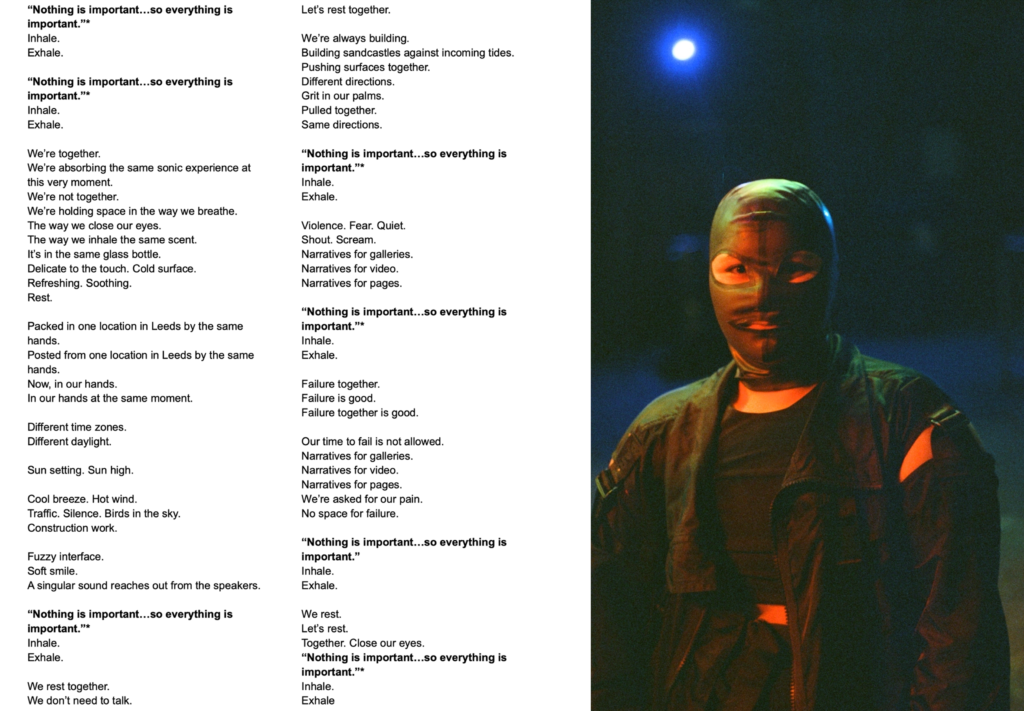
*“Nothing is important…so everything is important” is a quote by Keith Haring
Hear 15 minutes of a live sound bath experience that was performed live by Sayang on 28/04/22 using
modular synthesis, as part of We Need Queer Liberation Now project:
This sound bath experience was a one-hour sensory session with taste, smell and sound, created in
response to the previous days and months of shared space as artists who face queer censorship
together. Sayang developed the audio for a nourishing, restful experience that allowed for internal reflection, daydreaming, sleep and rest of any form. Equally important to this, it explored being together as a group of artists in different countries and locations, across sonic waves and without screens, video or verbal communication.
The quote by artist Keith Haring, “Nothing is important…so everything is important” became a
source of inspiration for this experience. As Sayang also found inspiration from previous conversations as a group and with guest hosts that explored change, failure, expectations and responsibility as Queer
artists, they in particular, wanted to hold space to reflect on failure as beauty and finding comfort within it.
All audio was created and performed live by Sayang on 28/04/22 using modular synthesis, as part of East Street Arts WNQLN project. The accompanying poem can be read with or without the audio.
Vee Dagger
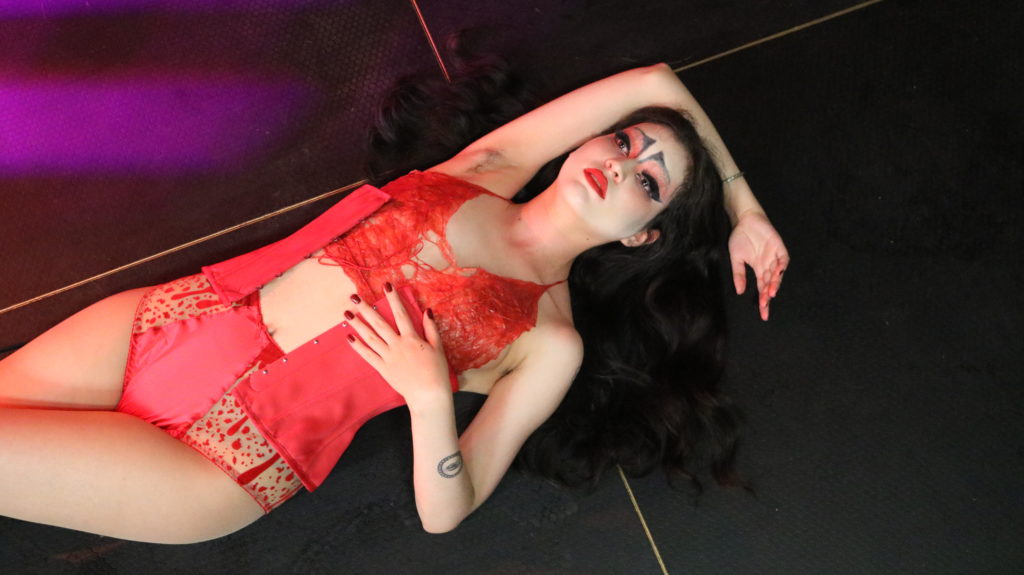
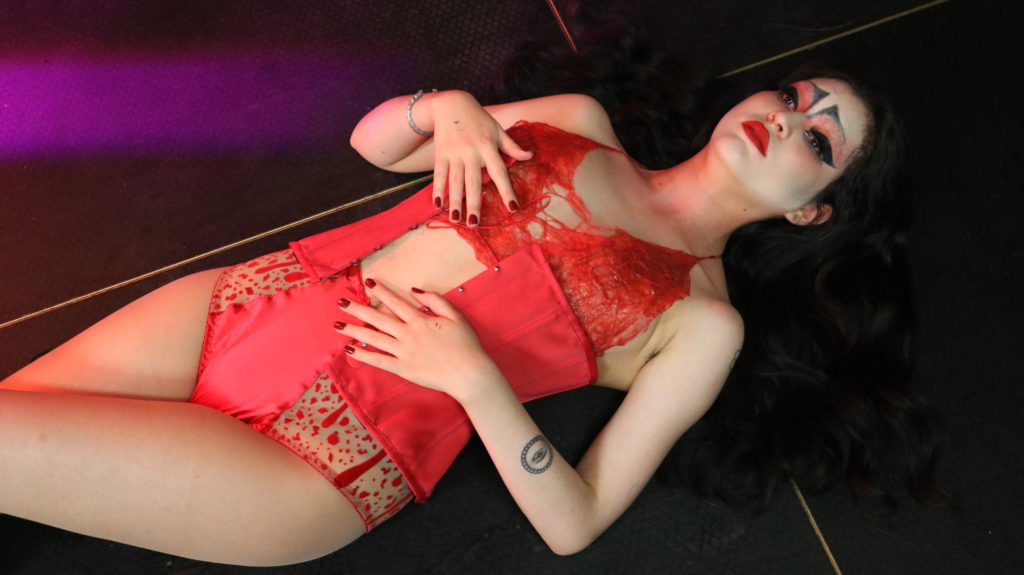
CONTENT WARNING: gore, death
As a drag artist, my work is centred around the creation of aggressively artificial realities.
There is always an awareness that I could be doing more to add to the artifice – fake lashes,
fake hips, fake hair, fake nails. I struggle with fatigue and find the process of getting into drag
and being in drag exhausting, but I wonder if I could be exhausting myself more. Queer
nightlife is my sanctuary and I find a kind of ecstatic peace within it, so I do strange things to
my body and face to feel at home within it.
In conceptualising work about tiredness and lack of rest, I was drawn to the 18th-century
anatomical model known as the Anatomical Venus – a lifelike wax model of a beautiful dead
woman whose torso could be taken apart to display her organs. I used a corset instead of
slicing my stomach open. I posed myself on the stage I performed on earlier the same night.
“It is genuinely difficult to pinpoint how unsettling it is, what an act of violence has been
perpetrated by the accuracy of the rendering. There seems to be something blasphemous,
inhumane, in creating a corpse and trying to beautify it – or rather, in considering beauty to
be a necessary trait in an anatomically accurate dead body. In taking beauty to be such a
critical component of womanhood, it misses, and seals in wax its own misapprehension of,
what beauty is. Attractiveness and life are indivisible: there is nothing in natural life that is
prettier dead than alive.” (Zoe Williams, The Guardian, 2016)
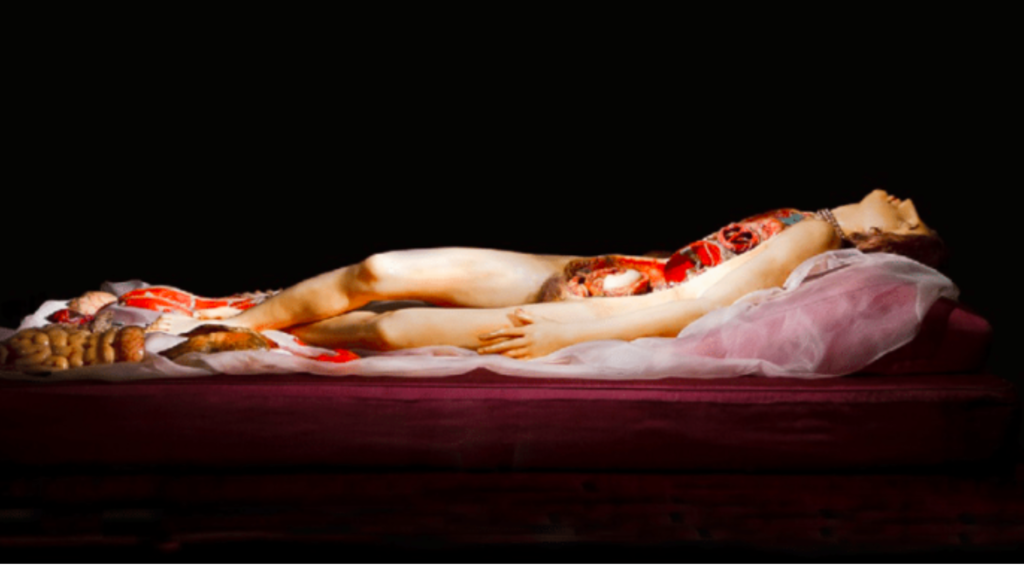
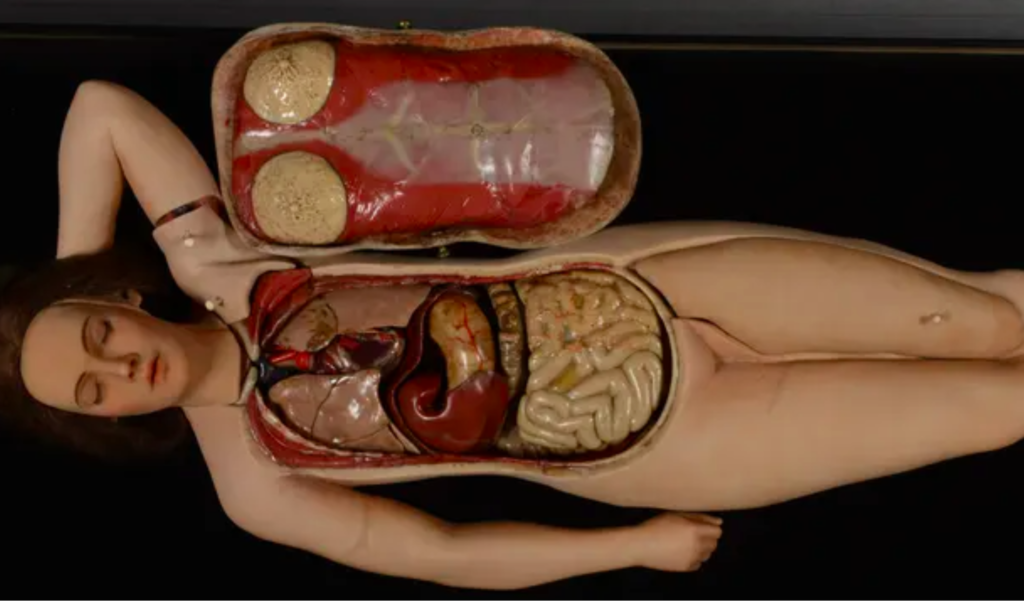
Metin Akdemir
Before
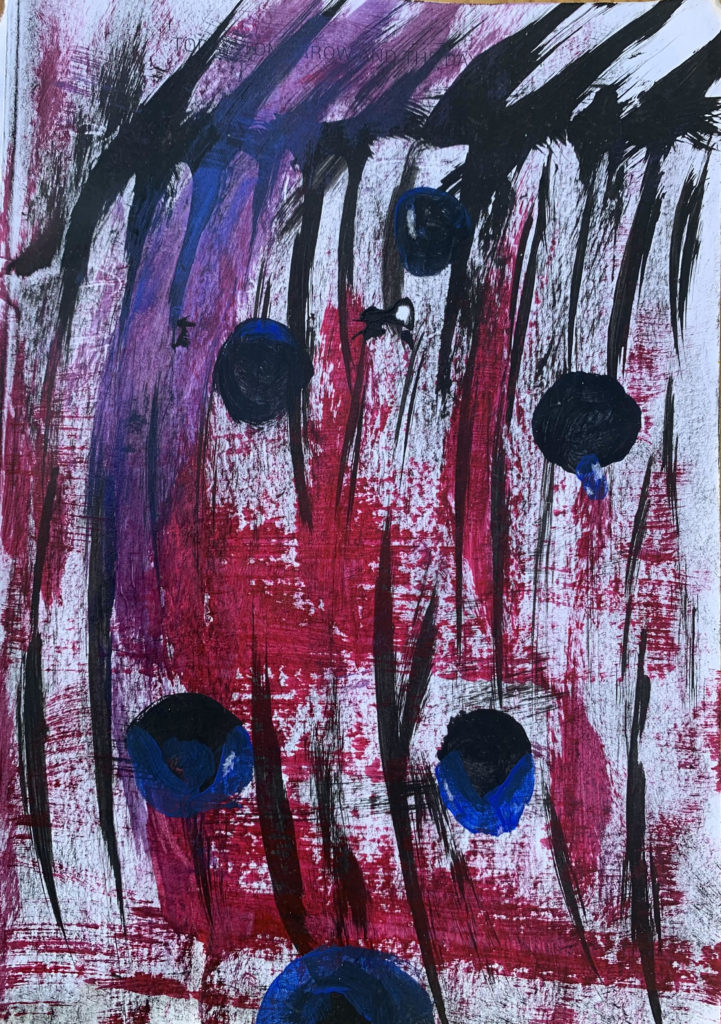
After
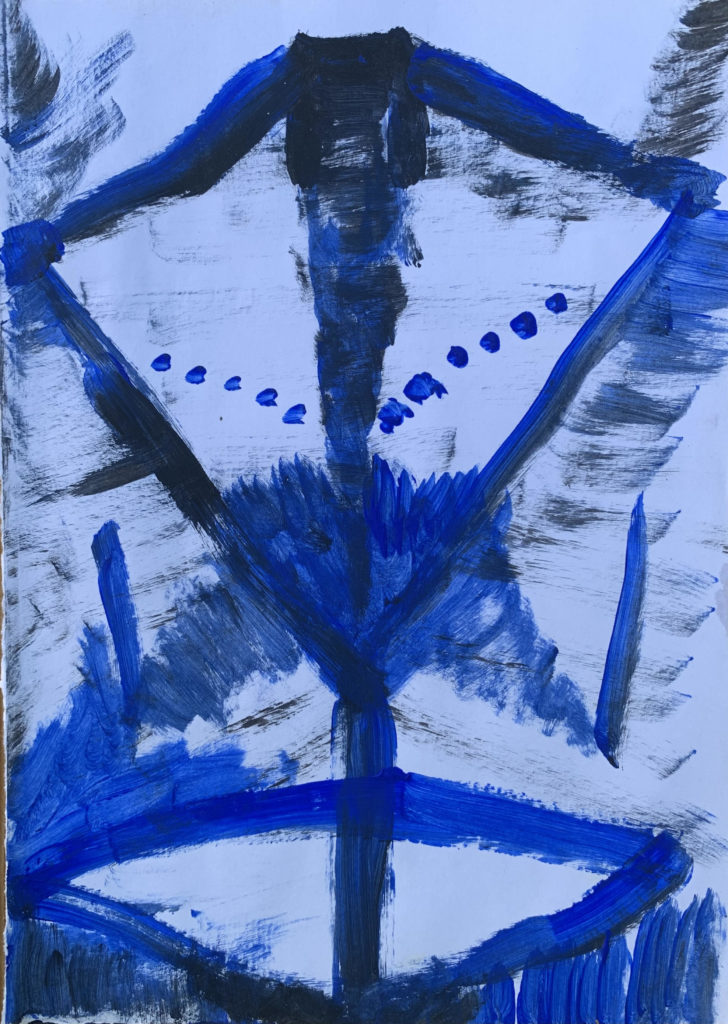
Axmed Maxamed
“Theory is not inherently healing, liberatory, or revolutionary. It fulfils this function only when we ask
that it do so and direct our theorising towards this end.”
bell hooks – Theory as Liberatory Practice.
This quote from bell hooks has often been on my mind ever since I listened to her book ‘Teaching to Transgress: Education as the Practice of Freedom’ and during the pandemic I kept coming back to it and realising how it fits within different contexts including nightlife. And when parties were starting up again this year, with many promoters ignoring that we were still in a pandemic, this quote helped me see things that were unfolding clearer. So when we were thinking about topics for the conversations of the Halloquium 2021, I believe it was Rayna who mentioned the quote, because she remembered it from one of my social posts and it became apparent that we had to have a conversation around this.
Although there are certainly ‘queer’ events and parties that are organised with care and community in mind, most ‘queer’ parties are straight up capitalist endeavours, both monetary and social capital. Some might start off with a mindset of really wanting to bring about change, but are co-opted after getting some form of recognition. When I say co-optation, that might seem as if I am saying that this ‘overcomes’ the promoter(s), but that is definitely not always the case. If you really want to push for change and want to provide, or help provide, space for those that are marginalised in society, you have to first acknowledge that societal injustices will be present and reproduced at any space where people come together. So you need to think deeply of what that means and how this can be addressed and minimised as much as possible. This starts within the collectives and groups of people that decide to organise an event together, but it also extends to your personal lives. Do you for example have people who are racialized in your close friend groups and if so, how do you treat them?
FOR FULL TEXT: https://performingborders.live/writings/nightlife-is-not-inherently-liberatory-axmed-maxamed/
ORANGE
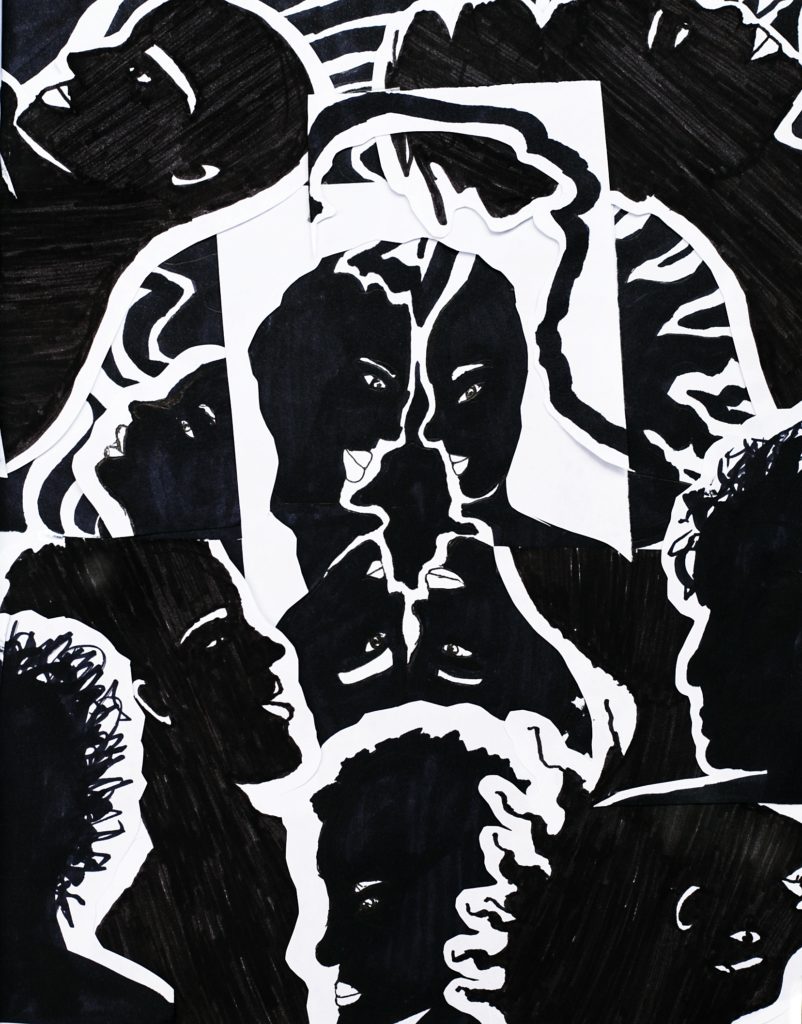
SANDY
What does queer rest mean to me, as an artist — what stops me getting more of it
Letting myself daisychain into rest, away from work (and the identity of work), pausing and/or slowing down before I can stop myself – feeling the momentum of my body with compassion, listening – stopping, and being here for that and whatever it has brought.
My work stops me from more – while there are larger and more urgent and difficult ways my life is affected by (and brought into stopping rest, starting work etc), I think rest for me is most often disrupted by not knowing when to pause the work I do want to do – so, in a sense, rest itself needs some focus, and for me, that is through little ways.
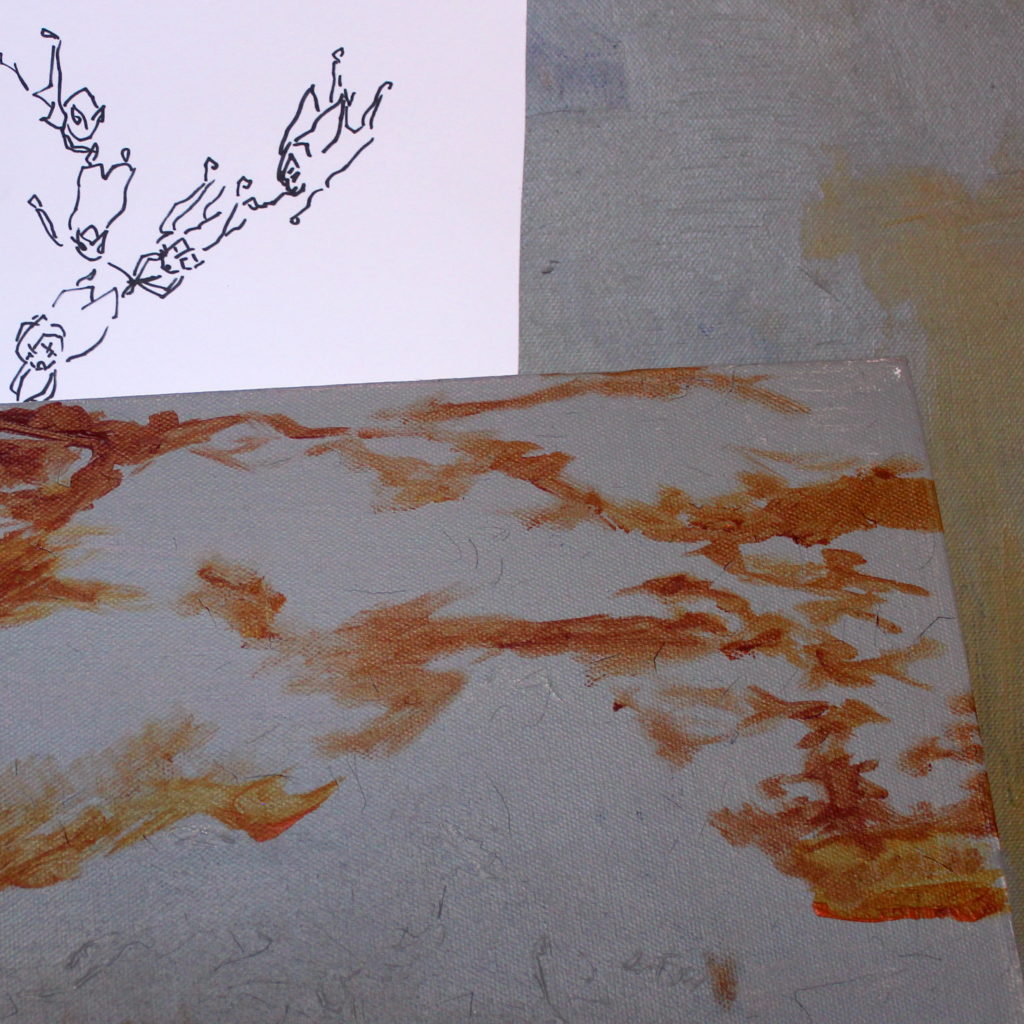
picture by Sandy
Roland Korponovics
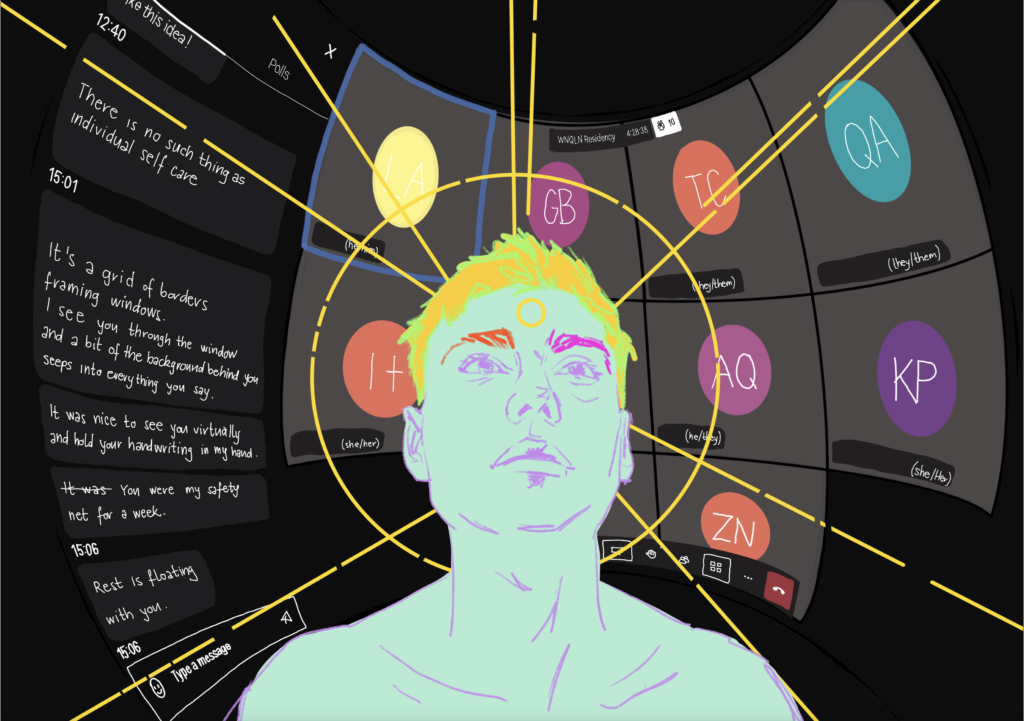
***
We Need Queer Liberation Now is an international residency and artist support project from East Street Arts and Theatre In The Mill, facilitated by Leeds-based artist Sayang and funding from the European Culture Foundation. It includes queer artists based across Europe, Middle East and North Africa. The responses here presented are commissioned by East Street Arts and Migrant Actions Productions for performingborders, as a result of a week-long online residency around the themes of care.
For more information on the WNQLN project and the artists, visit the East Street Arts page HERE.